Quality Assurance Officer
100+ Quality Assurance Officer Interview Questions and Answers
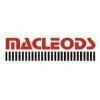
Asked in Macleods Pharmaceuticals

Q. What are the various challenge tests during primary packing?
Challenge tests during primary packing ensure the integrity of the packaging and its ability to protect the product.
Microbial challenge test
Leakage test
Drop test
Compression test
Accelerated aging test

Asked in Macleods Pharmaceuticals

Q. Do you know about various sampling locations in granulation?
Yes, I am aware of various sampling locations in granulation.
Sampling locations in granulation include in-process sampling, final product sampling, and stability sampling.
In-process sampling is done during the granulation process to ensure that the granules are of the desired size and consistency.
Final product sampling is done on the finished product to ensure that it meets the required specifications.
Stability sampling is done to test the shelf life of the product.
Sampling l...read more
Quality Assurance Officer Interview Questions and Answers for Freshers

Asked in Macleods Pharmaceuticals

Q. What are the various challenge tests during secondary packing?
Challenge tests during secondary packing ensure product stability and integrity.
Seal integrity test
Drop test
Vibration test
Compression test
Temperature and humidity test

Asked in Godrej Agrovet

Q. What quality control measures can be implemented to prevent obstructions during production?
To remove obstruction during production for quality control, proper planning, training, and communication are necessary.
Develop a detailed production plan with clear quality control measures
Train employees on quality control procedures and provide regular feedback
Ensure effective communication between production and quality control teams
Implement continuous improvement processes to identify and address issues
Use technology and automation to streamline production and improve q...read more

Asked in Stryker

Q. What is the difference between quality control and quality assurance?
Quality control is a process of identifying defects in a product, while quality assurance is a process of preventing defects from occurring.
Quality control involves inspecting and testing products to identify defects.
Quality assurance involves creating processes and procedures to prevent defects from occurring.
Quality control is reactive, while quality assurance is proactive.
Quality control is focused on the end product, while quality assurance is focused on the entire produc...read more

Asked in Macleods Pharmaceuticals

Q. Do you know about Hold Time Study?
Yes, Hold Time Study is a method used to determine the maximum time a product can be held before it deteriorates.
Hold Time Study is used in industries such as pharmaceuticals, food, and cosmetics.
It involves testing the product at various time intervals to determine its stability and shelf life.
The results of the study are used to establish expiration dates and storage conditions for the product.
Hold Time Study is an important aspect of quality assurance and regulatory compli...read more
Quality Assurance Officer Jobs

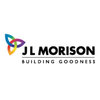
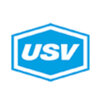
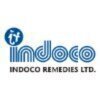
Asked in Indoco Remedies

Q. What is Disintegration test? What is the DT time for enteric coated tablets? What is the liquid medium used for enteric coated tablets?
Disintegration test is a test to determine the time it takes for a tablet to break down into smaller particles. DT time for enteric coated tablets is typically 1-2 hours. The liquid medium used for enteric coated tablets is usually 0.1 N HCl or simulated gastric fluid.
Disintegration test determines the time it takes for a tablet to disintegrate into smaller particles
DT time for enteric coated tablets is usually 1-2 hours
Liquid medium used for enteric coated tablets can be 0.1...read more

Asked in Sun Pharmaceutical Industries

Q. What do you understand by quality assurance?
Quality assurance is the process of ensuring that products or services meet or exceed customer expectations.
It involves creating and implementing quality control procedures
It includes monitoring and evaluating the quality of products or services
It aims to prevent defects and errors before they occur
It helps to improve customer satisfaction and loyalty
Examples include conducting product testing, performing audits, and providing training to employees
Share interview questions and help millions of jobseekers 🌟


Asked in Macleods Pharmaceuticals

Q. What kind of in-process checks do you conduct?
I conduct various in-process checks to ensure quality standards are met.
I check the production process at various stages to ensure it is running smoothly.
I verify that the correct materials are being used and that they meet quality standards.
I monitor the equipment to ensure it is functioning properly and calibrated correctly.
I perform visual inspections to ensure the product meets the required specifications.
I collect and analyze data to identify trends and potential issues....read more

Asked in Arvind Textile Mills

Q. Why is your previous job experience important to you?
My previous job experience was pivotal for my personal and professional growth, providing invaluable learning opportunities.
Developed strong attention to detail while conducting quality checks on products, ensuring compliance with industry standards.
Gained experience in using various quality assurance tools, such as Six Sigma and Lean methodologies, to improve processes.
Collaborated with cross-functional teams to identify and resolve quality issues, enhancing my problem-solvi...read more
Asked in Mediwell Biotech

Q. Dosage form ? And all types with examples? Tablets and types of tablet? Disintegration time of all tablets & friability? API & Excipients with examples ? Capsules & capsules size? GMP & GLP & cGMP? All Subjects...
read moreDosage forms in pharmacy include tablets, capsules, and various types of formulations. GMP, GLP, and cGMP are important regulations in pharmaceutical manufacturing.
Tablets are solid dosage forms made by compressing active pharmaceutical ingredients (API) and excipients. Examples include paracetamol tablets, aspirin tablets, and vitamin C tablets.
Capsules are solid dosage forms in which the API is enclosed in a gelatin shell. Capsule sizes range from 000 (largest) to 5 (smalle...read more

Asked in Gland Pharma

Q. Are you interested in Microbiology analytical review?
Yes, I am interested in Microbiology analytical review.
I have a strong background in microbiology and enjoy analyzing data in this field.
I have experience conducting microbiological tests and interpreting the results.
I am familiar with various microbiological techniques and methodologies.
I am interested in staying updated with the latest advancements in microbiology research.
I believe that my knowledge and skills in microbiology will contribute to my role as a Quality Assuran...read more

Asked in Laurus Labs

Q. What are the different types of validation?
Validation types include prospective, concurrent, and retrospective.
Prospective validation: validating a process before it is implemented
Concurrent validation: validating a process while it is being implemented
Retrospective validation: validating a process after it has been implemented
Equipment validation: validating equipment used in the process
Software validation: validating software used in the process

Asked in Indoco Remedies

Q. What is In Process Quality Control. What are the tests carried out.
In Process Quality Control involves testing and monitoring products during various stages of production to ensure quality standards are met.
Testing and monitoring products during production
Identifying and addressing any deviations from quality standards
Ensuring consistency and reliability of products
Examples: visual inspection, dimensional measurements, chemical analysis

Asked in UltraTech Cement

Q. What is the appropriate amount of aggregates to use in concrete?
The amount of aggregates in concrete varies depending on the type of concrete being used.
Aggregates typically make up 60-75% of the volume of concrete.
The size and shape of the aggregates can also affect the strength and workability of the concrete.
Common types of aggregates include gravel, sand, and crushed stone.
The amount of aggregates used in concrete can be adjusted to achieve desired properties such as strength, durability, and workability.
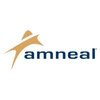
Asked in Amneal Pharmaceuticals

Q. Can you describe the critical surface sampling locations for a filling line?
Critical surface sampling locations for a filling line are key areas where contamination is most likely to occur.
Critical surface sampling locations include the filling nozzle, conveyor belts, capping machine, and packaging area.
Other important areas to sample are the product contact surfaces, such as the inside of the filling machine and the product containers.
Regularly sampling these locations helps ensure product quality and safety.
Examples of critical surface sampling loc...read more

Asked in Indoco Remedies

Q. What are all the major drug regulatory authorities of the world? What are the 21 CFR guidelines?
Major drug regulatory authorities include FDA, EMA, PMDA, Health Canada, TGA, etc. 21 CFR guidelines are regulations set by the FDA for pharmaceutical industry.
Major drug regulatory authorities include FDA (United States), EMA (European Union), PMDA (Japan), Health Canada, TGA (Australia), etc.
21 CFR guidelines are regulations set by the FDA under Title 21 of the Code of Federal Regulations.
21 CFR Part 210 and 211 cover Good Manufacturing Practices (GMP) for pharmaceutical pr...read more
Asked in Nysa Biomed

Q. What processes are involved in tablet formation?
The process of tablet formation involves several steps including blending, granulation, compression, and coating.
Blending: Mixing of active pharmaceutical ingredients and excipients to ensure uniform distribution.
Granulation: Formation of granules to improve flow properties and compressibility.
Compression: Compacting the granules into tablets using a tablet press.
Coating: Optional step to apply a coating for taste masking or controlled release.
Quality control: Testing for wei...read more

Asked in Macleods Pharmaceuticals

Q. Did you know about PQR?
Yes, PQR stands for Process Qualification Report.
PQR is a document that demonstrates the process validation of a manufacturing process.
It includes information on the process parameters, equipment used, and test results.
PQR is required by regulatory agencies to ensure the quality and consistency of the product.
It is an important part of the quality assurance process in industries such as pharmaceuticals and medical devices.
Asked in Nysa Biomed

Q. What is the difference between contamination and cross-contamination?
Contamination refers to the presence of unwanted substances, while cross contamination is the transfer of contaminants from one source to another.
Contamination is the introduction of harmful or undesired substances into a product or environment.
Cross contamination occurs when contaminants are transferred from one source to another, leading to potential contamination of the second source.
Contamination can be intentional or unintentional, while cross contamination is typically ...read more

Asked in Gland Pharma

Q. Tell me about change Control? And give me One Example?
Change control is a process used to manage and document changes to a system or process.
Change control ensures that changes are properly reviewed, approved, and implemented.
It helps to minimize risks and ensure that changes do not negatively impact the quality or functionality of the system.
Change control typically involves documenting the change request, assessing its impact, obtaining necessary approvals, implementing the change, and reviewing its effectiveness.
An example of...read more

Asked in Metalware Corporation

Q. what is Quality assurance, Quality control, and what is the difference.
Quality assurance focuses on preventing defects, while quality control focuses on identifying defects. QA is process-oriented, QC is product-oriented.
Quality assurance is a proactive process that focuses on preventing defects in the product or service being delivered.
Quality control is a reactive process that focuses on identifying defects in the product or service after it has been produced.
QA is process-oriented and involves establishing processes and standards to ensure qu...read more

Asked in INDO-MIM

Q. What are Cp and Cpk, how are they used, and why are they used?
Cp and Cpk are process capability indices used to assess the ability of a process to produce within specification limits.
Cp measures how well the process can fit within the specification limits.
Cpk takes into account the process centering and measures how well the process can fit within the specification limits while also considering the process variation.
They are used to determine if a process is capable of producing products that meet customer requirements consistently.
A Cp...read more

Asked in New Swan Enterprises

Q. What is the difference between Quality Assurance (QA) and Quality Control (QC)?
QA focuses on preventing defects, while QC emphasizes identifying defects in products.
QA is process-oriented, ensuring that processes are followed to prevent defects.
QC is product-oriented, involving the inspection and testing of products to identify defects.
Example of QA: Developing a training program for staff to ensure they follow best practices.
Example of QC: Conducting final inspections of a product before it is shipped to customers.
QA aims for continuous improvement in ...read more

Asked in Unichem Laboratories

Q. How do you perform area clearance or equipment clearance?
Area or equipment clearance involves thorough cleaning and inspection to ensure safety and quality standards are met.
Start by removing all items from the area or equipment being cleared.
Clean the area or equipment using appropriate cleaning agents and tools.
Inspect the area or equipment for any damage, wear and tear, or contamination.
Document the clearance process and any findings for record-keeping purposes.
Ensure proper disposal of any waste or contaminated materials.
Perfor...read more

Asked in Amneal Pharmaceuticals

Q. How will you prepare the surface of the glove port?
The surface of the glove port should be cleaned and disinfected before use.
Clean the surface of the glove port using a suitable cleaning agent
Disinfect the surface with a disinfectant solution to kill any remaining bacteria or viruses
Ensure the surface is completely dry before use to prevent contamination
Asked in The Swastik Pharmaceuticals

Q. What is GMP, and why is it important in the pharmaceutical industry?
GMP stands for Good Manufacturing Practices, ensuring quality and safety in pharmaceutical production.
GMP ensures that products are consistently produced and controlled according to quality standards.
It minimizes risks involved in pharmaceutical production, such as contamination and errors.
Examples include proper sanitation of equipment and facilities to prevent contamination.
GMP regulations cover all aspects of production, from raw materials to final product testing.
Complian...read more

Asked in Everest Spices

Q. What strategies do you employ for effective situation handling?
I employ proactive communication, problem-solving skills, and collaboration to effectively handle situations.
Maintain open and clear communication with all stakeholders
Utilize problem-solving skills to identify root causes and develop solutions
Collaborate with team members to brainstorm ideas and implement strategies
Stay calm under pressure and prioritize tasks effectively
Asked in Sanyog Pharma

Q. What do you think of ethnographic research?
Ethnography research provides deep insights into user behaviors and cultural contexts, enhancing quality assurance processes.
Focuses on understanding user experiences in their natural environment.
Utilizes methods like participant observation and interviews to gather qualitative data.
Can reveal hidden issues in product usability, as seen in tech companies studying user interactions.
Helps in developing user-centered designs by understanding cultural nuances, such as in healthca...read more

Asked in Bliss Gvs Pharma

Q. What is the difference between hardness and compaction force?
Hardness refers to the resistance of a material to deformation, while compaction force is the force applied to compact a material.
Hardness is a measure of how resistant a material is to scratching or indentation.
Compaction force is the force applied to compress or compact a material, such as in soil compaction.
Hardness is typically measured using tests like Rockwell or Vickers hardness tests.
Compaction force is often measured in pounds or newtons depending on the application....read more
Interview Questions of Similar Designations
Interview Experiences of Popular Companies








Reviews
Interviews
Salaries
Users

















